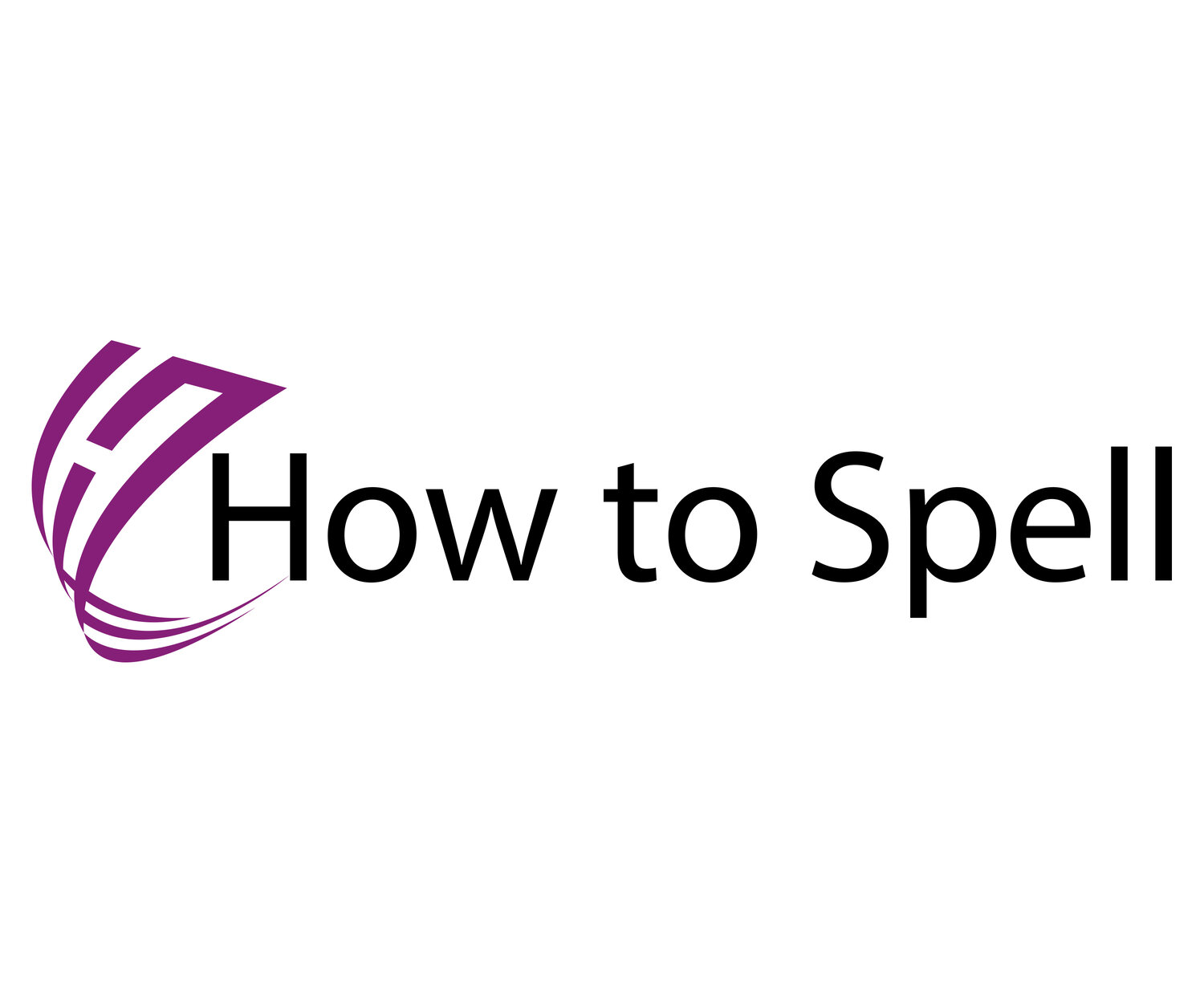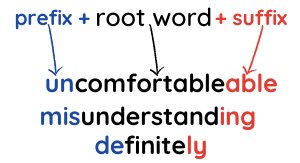Prefixes and Suffixes Introduction
Uncomfortably, disinterested, unmanageable, indifferently, unnecessarily, anticlockwise, misrepresentation.
Do long words scare you?
You can improve your spelling, increase your knowledge of words and spellings, and dramatically improve your confidence with spelling if you understand that long words are often made up of a 'root' word plus 'bits' added to the beginning and/or end." (These "bits" are called prefixes and suffixes). Basic Skills Agency, UK
1. Root word/base word is a word which a prefix and suffix can be added to make another word.
2. Prefixes are little words that go before a root word to change its meaning: un + certain = uncertain, mis + understanding = misunderstanding, il+ legal = illegal, ir + regular = irregular.
There are hundreds of prefixes, some of the most popular are: in-, ir-, il-, im-, un-, dis-, pre-, ex-, anti-, uni-, bi-
3. Suffixes are little words that are added to the end of a word to change the grammar and the way that a word is used: want + ed = wanted, regular + ly = regularly, starting, phones, artist, fallen, incredible, baggage, happiness
Adding prefixes and suffixes to words makes long words: uncomfortable, unhappiness, misinformation.
You’ll learn more about these in the next few lessons (check links below).
Spelling Strategy - syllable breakdown
Breaking these words down into syllables is a great way to remember these words. Check out my video here Spelling tip number 6 - Using syllable breakdown.
Understanding how to identify syllables helps you to tackle long words, by breaking the word down into manageable parts.
This means you break them down into little spoken chunks and each chunk is called a syllable.
Each syllable usually has a vowel in it:
Say ‘qualification’ aloud. Listen to the way it breaks into syllables:
qua - li - fi - ca - tion (5 syllables)
advertisement = ad / ver / tise / ment (4 syllables)
When you break a word down into syllables it helps you see the part of the word you need work on.
Look at the following words and how we break them down.
We can see the prefix and suffixes
dissatisfied = dis /sat/is/fied
uncomfortable = un/com/for/ta/ble
irregularly = ir/ reg/u/lar/ly
immoveable = im/ move/ a/ ble
Breaking words into syllables also helps you remember the silent letter(s) in the word.
Let's look at Wednesday with that horrible silent 'd' in there.
We say ‘wens day’ but spell it Wed/nes/day. When you need to spell it say it slowly and exaggerated, Wed / nes / day, and you'll be able to spell it every time
Click here for more on syllables - Spelling tip number 6 - Using syllable breakdown.
Check out my Language of Spelling lesson Click here to find out the key words to understanding spelling rules and building words
Then click here to go to the Building words with prefixes lesson


